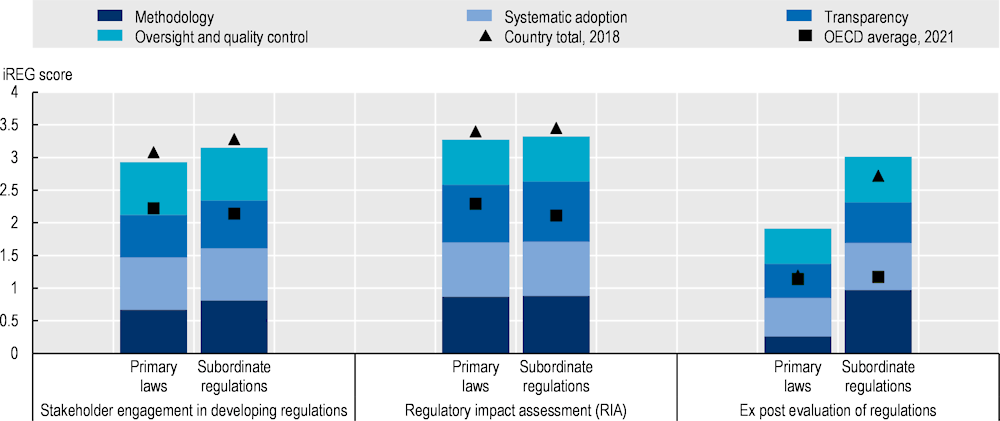In Mexico, the General Law of Better Regulation enacted in 2018 modernised the regulatory policy in the country. It updated the former oversight body by creating the National Commission for Better Regulation (CONAMER). It added provisions to strengthen the mandatory use of RIA and stakeholder engagement, and established new provisions to carry out ex post assessment of regulations that generate compliance costs.
The practice of RIA in Mexico encompasses the use of thresholds tests to perform analyses proportional to the expected impact of the regulation, and specialised assessments such as effects on competition, risk management, trade, and consumer’s rights, amongst others. Stakeholder engagement is employed routinely in several of the regulatory management tools, notably in later stages of the RIA process, and in ex post assessment exercises. Mexico could promote the use of early stage consultation in rule making.
In order to enhance the contribution of RIA and stakeholder engagement to regulatory quality and wellbeing, Mexico could perform more sophisticated, and to the extent possible, more independent assessments of their implementation and effectiveness. The results of these exercises may provide insights to also boost the use of ex post assessment tools.
CONAMER has technical and operational autonomy, but remains hierarchically subordinated to the Ministry of Economy. CONAMER’s attributions and mandate include advice and support to implement regulatory management tools, as well as the scrutiny of RIAs and other better regulation obligations by regulators and line ministries. The General Bureau of Standards of the Ministry of Economy has the responsibility of supervising the development of technical regulations, including the consideration of international standards and practices. The draft technical regulations must then follow the general RIA process overseen by CONAMER.
Indicators presented on RIA and stakeholder engagement for primary laws only cover processes carried out by the executive, which initiates approximately 6% of primary laws in Mexico. There is no formal requirement in Mexico for consultation and for conducting RIAs to inform the development of primary laws initiated by parliament.


 All/■ Always/▲ Yes
All/■ Always/▲ Yes  Major/■ Frequently
Major/■ Frequently Some/■ Sometimes
Some/■ Sometimes Never/▲ No
Never/▲ No